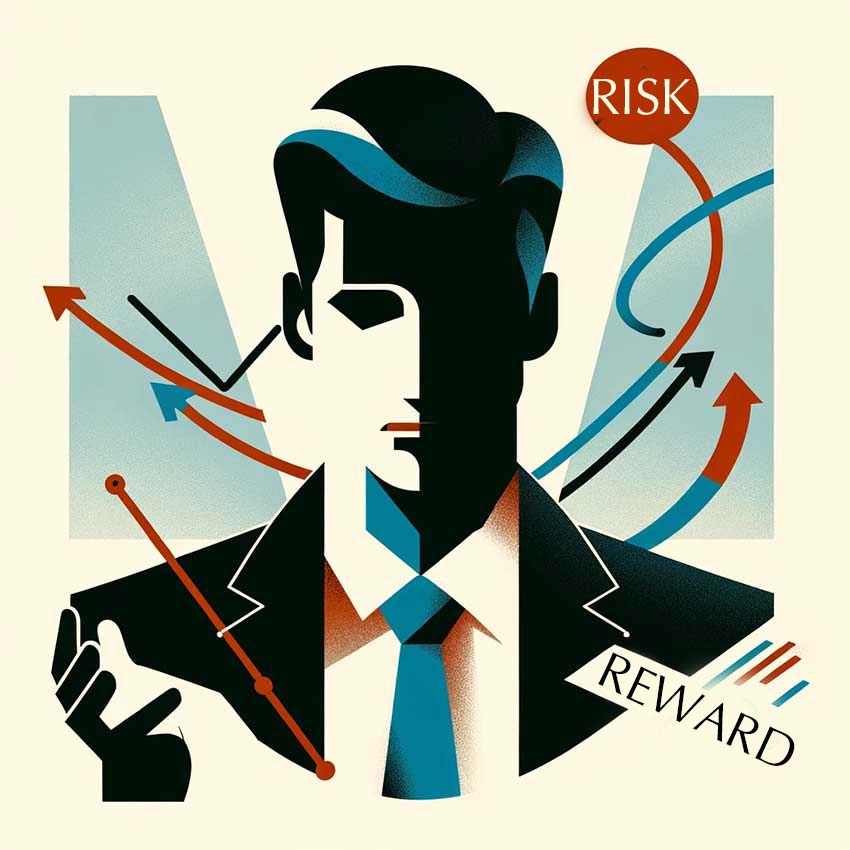Are you set to climb corporate ladders or carve your own path? Take our quiz to find out if you should get a job or become an entrepreneur!

Ever found yourself daydreaming about your ideal work life? Maybe you see yourself in a swanky office, climbing the corporate ladder. Or perhaps you’re picturing your very own startup, in a small garage-office to start with, surrounded by passionate individuals, being the boss and calling the shots.
If you’ve ever wondered whether you should start a business or get a job, you know that this is not an easy decision. So today, let’s have this debate – for you! From what to consider and how to make the decision to doing some introspection on your own career motives, let’s discuss it all. And finally, if you still don’t know, I’ve made a should you become an entrepreneur or get a job quiz to find out, once and for all!
Harvard Alumni & Their Dream Jobs
Did you know that 15% of Harvard graduates from HBS venture into entrepreneurship within 15 years of graduation? That number is even higher if you consider the university-wide alumni entrepreneurship rate. According to a report published in Harvard Gazette, 39% of Harvard alumni have become entrepreneurs, either by founding a for-profit or nonprofit venture.
While we’re at it, let’s also discuss the success rate of businesses started by Harvard alumni or university graduates. Harvard entrepreneurs have created 20.4 million jobs worldwide with 146K active ventures. Recent trends show that 31% of young entrepreneurs are diving into the science or tech sectors, followed by finance (13%).
But while that’s all well and good, do you know what Harvard alumni love to do even more than entrepreneurship? Jobs in leadership for nonprofits! Yes, Harvard alumni currently serve on nearly 300,000 boards, out of which 72% of the boards are for non-profit organizations.
While everyone has their own unique goal, many students dream of the day they can break free from traditional jobs and become an entrepreneur. While some are content in their 9 to 5 routines, others aspire to become an entrepreneur and revolutionize industries.
To become an entrepreneur is to embrace both the challenges and rewards of creating your own path. So while you’re trying to make the decision about what’s right for you, let’s look at some factors that could be governing your decision-making, to clarify your thought process.
Why Do Some People Want to Become Entrepreneurs?
The motivation behind choosing either traditional employment or entrepreneurship is multifaceted, often driven by both internal and external factors. Here are some motivations and additional factors that motivate people, and indeed could be motivating you to choose the entrepreneurship route:

- Cultural and Societal Norms: In some cultures or societies, there’s a strong emphasis on job stability and working for reputable companies. In contrast, others might value and celebrate entrepreneurial ventures more.
- Family Responsibilities: Those with significant family obligations might prioritize steady income and benefits over the uncertainties of entrepreneurship.
- Access to Resources: Having access to resources such as mentorship, capital, co-working spaces, and entrepreneurial networks can make the journey towards starting a business more appealing and feasible.
- Previous Experiences: Past work experiences, especially negative ones, can push someone towards entrepreneurship. Conversely, positive experiences and growth opportunities in a job can make traditional employment more attractive.
- Economic Factors: The broader economic situation, availability of jobs in one’s field, interest rates, and access to startup capital can influence the decision.
- Legal and Regulatory Environment: In regions where starting and operating a business is riddled with bureaucratic hurdles, many might be dissuaded from entrepreneurship.
- Personal Resilience: The capacity to cope with setbacks, adapt, and persevere can be a determining factor, especially for potential entrepreneurs.
Decisions about career paths are deeply personal and are shaped by a combination of individual aspirations, external influences, and circumstantial factors.
How to Decide Whether to Become an Entrepreneur or Get a Job?
Before we get to the quiz, here’s another method of introspection.
Deciding between getting a job and becoming an entrepreneur is an important albeit a very personal choice that depends on various personal, financial, and professional factors. Here are some factors to consider:

- Risk Tolerance: Entrepreneurship often involves higher risks. Consider how comfortable you are with uncertainty. Can you handle periods of no income, or the potential of a business failing?
- Financial Stability: Starting a business often requires capital. Assess your financial situation. Do you have savings, or can you secure funding? If not, a steady job might be more appealing, at least initially.
- Experience and Knowledge: Before diving into entrepreneurship, it’s beneficial to have industry knowledge in your area of expertise, and experience. A job in your desired field can provide valuable insights and connections.
- Passion and Drive: Entrepreneurship demands a significant amount of time, energy, and passion. So it’s important that your business idea is something you’re genuinely passionate about (by which I mean it doesn’t get boring to you), because you’ll be working at it day and night for years.
- Work-Life Balance: Entrepreneurs often work long hours, especially during the startup phase. Consider your personal commitments and if you can maintain a work-life balance.
- Support System: Having a robust support system, be it emotional, financial, or mentorship, can make the entrepreneurial journey smoother.
- Market Viability: Just having a passion isn’t enough. Is there a market demand for your product or service? Conduct market research to validate your business idea.
- Personal Goals: Reflect on your long-term goals. Are you looking for financial independence, freedom to make decisions, or perhaps job security and a stable income?
- Skill Set: Being an entrepreneur often means wearing many hats, from marketing to finance. Evaluate your skill set and recognize areas you might need to develop or outsource.
- Flexibility: Entrepreneurship can offer flexibility in terms of work hours and location. If this is a priority for you, it might tilt the balance in favor of starting a business.
- Growth Mindset: The entrepreneurial journey is filled with challenges and failures. Having a growth mindset, where you view setbacks as learning opportunities, can be crucial.
- Current Economic Climate: Economic downturns or booms can significantly affect the success of a new business. Understand the current economic environment before making a decision.
The years right ahead of your university or college graduation are transformative both personally and professionally. Balancing aspirations with responsibilities, understanding the broader market, and introspection can guide you in making your career choice.
Why Do You Want to Become an Entrepreneur? A Motivational Introspection
Practically speaking, if you’re considering the entrepreneurial route, there’s a possibility that you’re motivated by something other than money. So let’s look at some of the things that could be motivating you:
Personal Fulfillment: Some people are driven by a strong desire to build something of their own or make a difference in the world. The satisfaction of seeing one’s vision come to life can be a powerful motivator.
Financial Aspirations: While some pursue entrepreneurship in hopes of greater financial gain in the long run, others might prioritize the stability and predictability of a regular paycheck.
Independence and Control: The allure of being one’s own boss, setting one’s own hours, and having decision-making authority can be a significant pull towards entrepreneurship.
Legacy: The idea of creating something that lasts, be it a brand, a product, or a service, can be a driving force for many.
Challenge and Learning: Some are motivated by the constant challenges and steep learning curves associated with starting and running a business.
Societal and Peer Influence: Societal values, success stories in the media, or peer experiences can shape one’s perspective and drive towards either option.
Job Security: Some see entrepreneurship as a way to take control of their financial destiny, especially in volatile job markets, while others might view steady employment as more secure.
If you’re considering becoming an entrepreneur, perhaps this list would have helped you find out what’s behind your own motivations, and whether those are the right reasons or not.

Should You Start a Business or Get a Job Quiz
It’s a big world out there, and choosing between getting a steady job and diving into the wild world of entrepreneurship isn’t easy. So, how about a fun little quiz to rediscover your career goals?
Whether you’re fresh out of Harvard (or another school for that matter) or just curious about what suits your personality best, this quiz is for everyone. Ready? Let’s go!

Correct!
Wrong!

Correct!
Wrong!

Correct!
Wrong!

Correct!
Wrong!

Correct!
Wrong!

Correct!
Wrong!

Correct!
Wrong!

Correct!
Wrong!
Share the quiz to show your results !
Subscribe to see your results
%%personality%%
%%personality%%
Loading...